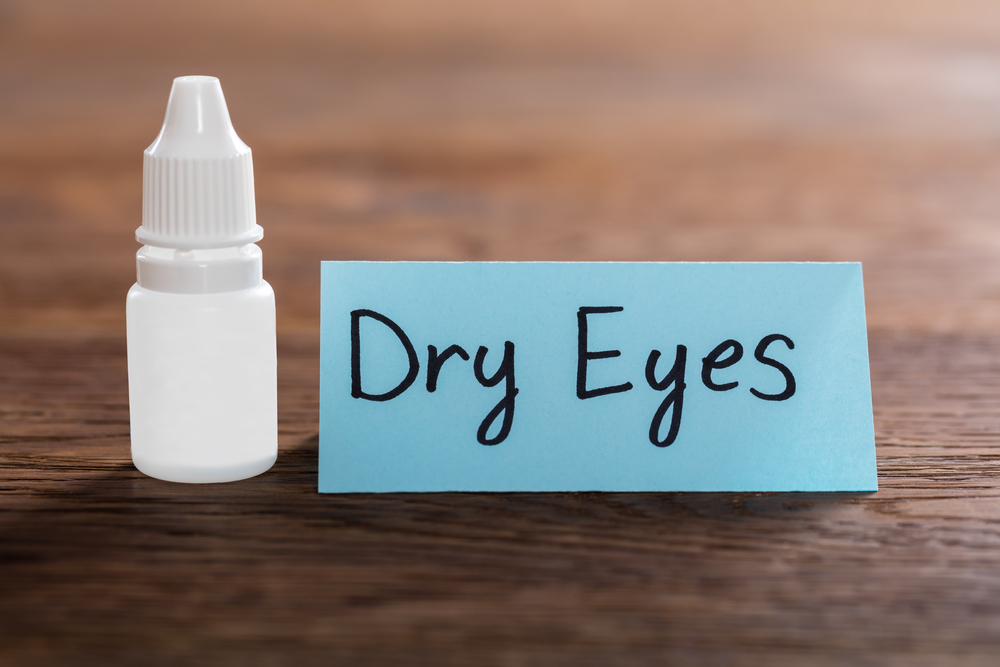

There’s nothing worse than waking up with dry itchy eyes.
Well, maybe there is: Waking up with dry or itchy eyes for days, weeks, or months at a time.
Trying to live your daily life with this problem can be maddening.
But what can you do? And, perhaps more importantly, what’s causing this problem in the first place?
Today, we’ll be looking at some of the leading causes and treatments for dry itchy eyes. Let’s take a look!
Symptoms
Dry, itchy eyes must be fairly easy to diagnose since the symptoms are right there in the name.
If they’re dry, or if they’re itchy, there’s your problem, right?
Not always.
Dryness of the eye can manifest in other ways. Some common symptoms of overly dry eyes include:
- Excessive watering
- Light sensitivity
- Blurred vision
- Burning or itching sensations
Any of these could be the start of a dry eye problem for you. But what’s at the heart of these problems?
As it turns out, quite a bit.
Causes
Because dry itchy eyes can be symptomatic of any number of problems, there can be any number of causes behind them.
It’s important to examine your surroundings and lifestyle. You’ll also want to consult a medical doctor to get a professional opinion.
The remedy could be as simple as a new humidifier or changing a prescription. Your first job is to find the cause.
Lack of Moisture
This may sound obvious, but stay with us.
Moisture is a fundamental need for the wellbeing of an eye. At the root of it, dry itchy eyes are most often caused by a simple lack of moisture than by anything else.
Low humidity can also affect it by promoting the drying out process.
As an interesting side note, this problem can also affect your ability to wear contact lenses. The lenses sit on the moisture layer of your eyeball. If this is too dry, the lens will feel painful or irritating to use.
Disease
Of course, sometimes dry eyes have a more specific cause.
Dry eye syndrome, or DES, is an ocular surface disease, which can be caused by injuries or eyelid disorders. The condition is often medicated, but, given time, it can also sometimes go away on its own.
There are also unrelated autoimmune illnesses that cause dry itchy eyes.
Lupus and rheumatoid arthritis do this as a side effect. Sjorgen’s syndrome attacks saliva and tear glands, directly. Some medications also cause dry eyes.
Quality of eye moisture
Low-quality tears can be another cause of dry itchy eyes.
Sometimes glands don’t produce tears with enough oil. Instead of lubricating the eyeball, this moisture simply evaporates, leaving the surface dry. This is also known as meibomian gland dysfunction.
Age
Getting older can also be a factor. As you age, your eyelids sag and the moisture seal on your eyeball fails more often.
Your tear glands begin to underperform, as well, producing fewer tears to soothe your eyeball and protect it from drying out.
Surgery
Eye surgeries, such as cataract and LASIK can cause dry eyes, as a side effect. If you experience symptoms as a result of recent surgery, make sure to contact your ophthalmologist as soon as possible.
Screen time
It turns out your mom was right! Spending too much time in front of the TV will ruin your eyes.
Looking at a screen can exacerbate an existing dry eye condition, as you’re less likely to blink when you’re engrossed in something.
Tear duct infections
When tear ducts become blocked with bacteria, they can become infected, like any other organ in the body. When this happens, itchy eyes are never far behind.
Though this is more common among infants, it can affect anybody. Tear duct infections, or dacryocystitis, produce itchy, irritated and watery eyes.
Allergies
A lot of the time, simple allergies are the cause of dry itchy eyes.
Seasonal pollen, pet dander, or more specific skin allergies can sap the moisture from your eyes. Certain foods can also exacerbate this type of problem.
Remedies
Living with dry itchy eyes can be a complete nightmare. There are solutions, though!
Eye drops
Artificial tears are the most common treatment for dry eyes. These are available over the counter and are often effective.
Prescription eye drops are available for more specific cases. Sometimes, these are available in gel form, for when the eye dries out over some time.
If the irritation is severe and chronic, doctors may prescribe autologous blood serum drops. This remedy involves taking a sample of the patient’s blood, removing its red blood cells, and combining it with a salt solution. These are only used when patients’ dry itchy eyes aren’t responding to any other treatment.
Medication
Antibiotics and anti-inflammatory medicines are available for patients suffering from an eye-drying illness.
Infections, allergies, and oil deficiencies in your tear ducts can all be treated with medication. Ask your doctor for a prescription that fits your diagnosis.
Specialized contact lenses are also available for people who want to keep using theirs but are having problems.
Lifestyle
Depending on the cause of your dry itchy eyes, you’ll also be able to make changes to your daily routine that should help you to ease the problem along.
Altering your diet can help you identify allergies that might be drying out your eyes. Buying a humidifier can help to keep your eyes moistened, even when they’re open. Even something as simple as blinking more often has been shown to have positive results.
Before anything, you should always consult a professional about the best treatment for you.
Make Dry Itchy Eyes a Thing of the Past
Eye irritation can be a symptom of half a dozen different underlying factors.
Visit our website today, for more information on our dry eye treatment services.
If you’re concerned, make an appointment with us and get yourself diagnosed and treated immediately.